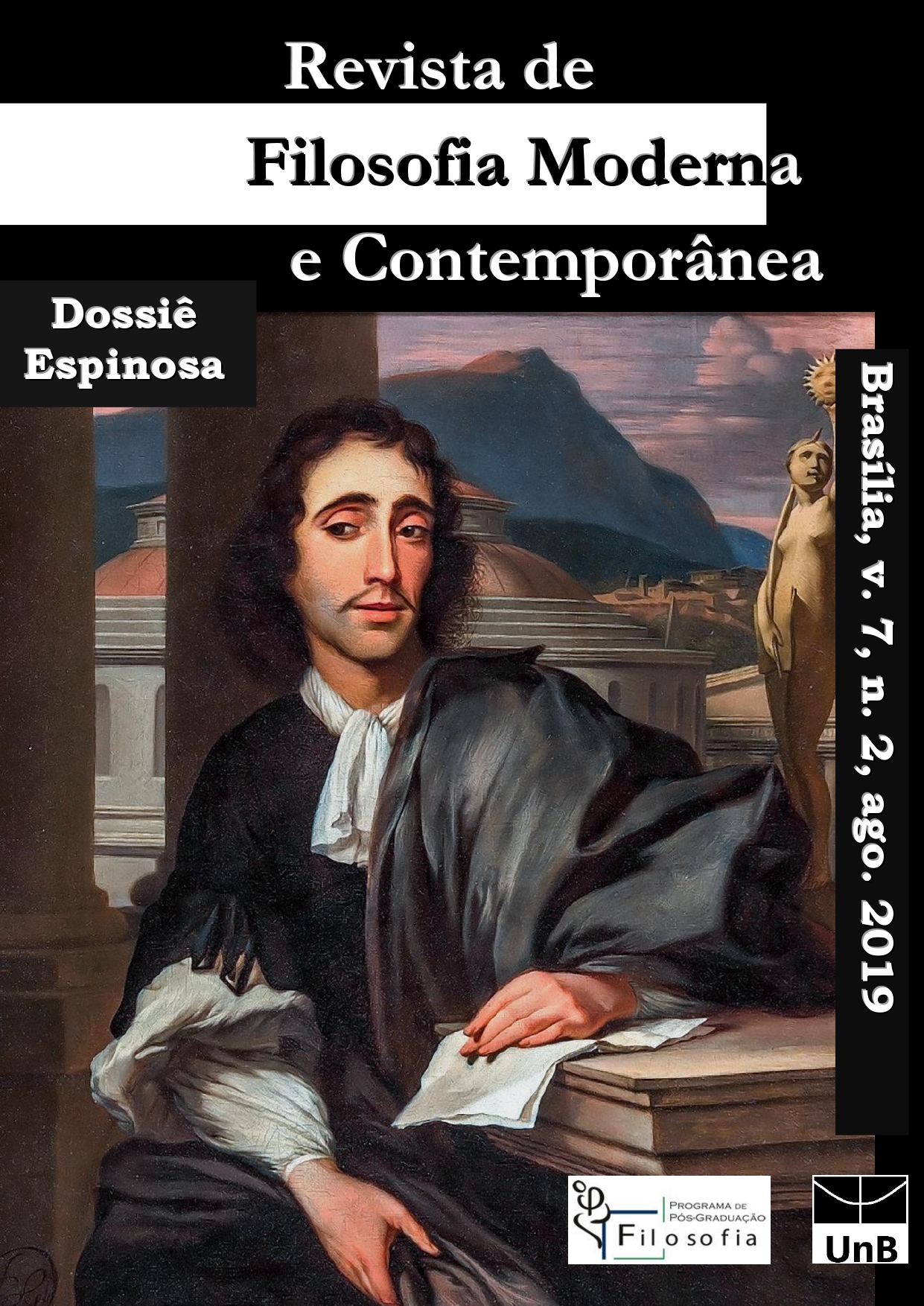A Influência de Schelling sobre Schopenhauer
DOI:
https://doi.org/10.26512/rfmc.v7i2.24828Keywords:
Schopenhauer; Schelling; influênciaAbstract
Neste artigo investigo as contribuições positivas que a filosofia de Schelling fez ao desenvolvimento do pensamento filosófico de Schopenhauer. Deixando de lado a rejeição desta filosofia por parte do Schopenhauer maduro, examinarei algumas ideias que o jovem Schopenhauer (1811-1813), através da leitura e estudo dos livros de Schelling, poderia ter aceitado, reformulado, e incorporado ao seu pensamento filosófico original.
Downloads
References
CARTWRIGHT, D. Schopenhauer: a biography. Cambridge: Cambridge Univ. Press, 2010.
GARDNER, S. Schopenhauer’s Deconstruction of German Idealism (https://www.discovery.ud.ac.uk).
RAPPAPORT, S. Spinoza und Schopenhauer. Halle-Wittenberg: Halle Als, 1899. https://epdf.tips/spinoza-und-schopenhauer.htm.
SAFRANSKI, R. Schopenhauer e os anos mais selvagens da filosofia. Lagos, W. (trad). São Paulo: Geração Editorial, 2011, p. 582-583.
SCHELLING, F.W.J. Ideen zu einer Philosophie der Natur. (2ª ed.) Landshut: P.Krüll, 1803.
SCHELLING, F.W.J. Philosophical Investigations into the Essence of Human Freedom. Love, J. e Schmidt, J.(trad). New York: State Univ. of N.Y. Press, 2006.
SCHELLING, F.W.J. Philosophische Untersuchungen über das Wesen der menschlichen Freiheit http://data.bnf.fr.
SCHELLING, F.W.J. System des transzendentalen Idealismus. Hamburg: Meiner, 2000.
SCHOPENHAUER, A. Arthur Schopenhauer’s handschriften Nachlass. Fräuenstadt, J. (ed). Leipzig: Brockhaus, 1864 (http://books.google.com).
SCHOPENHAUER, A. Die Welt als Wille und Vorstellung. Vol.I e II. Frankfurt: Insel Verlag, 1996/
SCHOPENHAUER, A. Manuscript Remains. Vol. I e II. Hübscher, A. (ed) e Payne, E.F.J. (trad). Oxford: Berg, 1988.
SCHOPENHAUER, A. Parerga and Paralipomena. Vol. I e II (PP1 e PP2). Payne, E.F.J. (trad). Oxford: Oxford Univ. Press, 2010.
SCHOPENHAUER, A. The Fourfold Roots of the Principle of Sufficient Reason. Hillebrand, K. (trad). London: G.Bell and Sons, 1903.
SCHOPENHAUER, A. The Two Fundamental Problems of Ethics. Cartwrigh, D. e Erdmann, E. (trad.). Oxford: Oxford Univ.Press, 2010.
SCHOPENHAUER, A. The World as Will and Representation. Payne, E.F.J. (trad). New York: Dover Publications, 1969.
SCHOPENHAUER, A. Über die vierfache Wurzel des Satz vom zureichend Grunde. Rudolstadt: Bayerische Staats Bibliothek ”“ Müncher Digitalisierungs Zentrum, 1813.
SEGALA, M. e DE CIAN, N. “What is will?”. In: Schopenhauer-Jahrbuch, 83, 2002.
WELCHMAN, A. Schopenhauer’s Understanding of Schelling. (https://www.researchgate.net).
Downloads
Published
How to Cite
Issue
Section
License
Copyright for articles published in this journal is retained by the authors, with first publication rights granted to the journal. By virtue of their appearance in this open access journal, articles are free to use, with proper attribution, in educational and other non-commercial settings.


